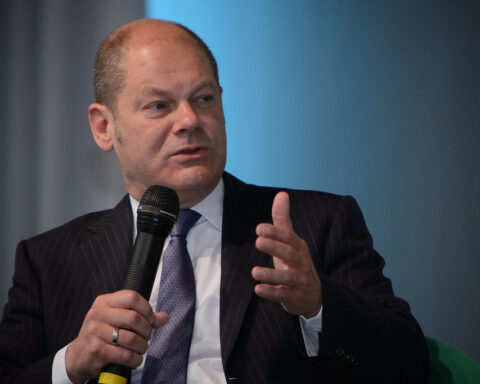The U.S. has been steadily decreasing its involvement in the Middle East, and it so far seems to be benefiting them greatly. While one can’t say that the U.S. is completely disengaged, they have pulled back quite a lot. In 2020 there were approximately 90,000 troops in the U.S. which has now decreased to about half.
Since the U.S. has prioritized other military efforts, the Middle East has seen many peaceful interactions between previously fighting countries. Diplomacy seems to be the new focus. Just this week one of those diplomatic merges occurred in a meeting between Israeli Prime Minister Naftali Bennett and United Arab Emirates (UAE) Crown Prince Sheikh Mohammed bin Zayed. This is a landmark in history, as no Israeli leader has ever met the Crown Prince of UAE before.
Partnerships between these two countries has greatly increased tourism, and the Crown Prince is set to plan a visit to Israel in return.
Another example of former foes turning to amicable partnerships is Saudi Crown Prince Mohammed bin Salman meeting with Qatar’s Emir Sheikh Tamim bin Hamad Al Thani. There had been previous political tension between the two, as bin Salman had led a boycott post-terrorism allegations against Qatar.
Turkey and the UAE are also burying the hatchet, as the Crown Prince also traveled to Turkey after 10 years of never having visited. These two countries are notoriously on opposite sides of any political topic, and have been for years. Now, both leaders seem to be finding common ground as they have both signed economic and financial agreements benefiting them both.
Turkey and Egypt are also looking to repair and mend their political relationship, as their respective deputy foreign ministers are going to be meeting to discuss and solve several issues like internal affairs interference, as well as Mediterranean gas fields. In the meantime, prior to that visit and discussion, both countries have agreed to keep their use of propaganda in the media at a minimum.
So what has changed to prompt these different cases of diplomacy between previously warring or simply unfriendly countries? It can be assumed that because the U.S. is now pulling out their troops and generally keeping their interference in the Middle East’s diplomacy at minimum, that countries now have to fend for themselves. Saudi Arabia and the UAE seem to be the ones leading these diplomatic discussions and meetings, looking to find new partnerships. Both of these countries have received the most support from the U.S. prior to the decreased involvement.
While there are still many U.S. troops present in the U.S. and a large military base is also still located in Qatar, as the U.S. keeps decreasing its presence it’s likely that the benefit and diplomacy will continue to rise. The less interference there is, the more of a need there is for Middle eastern countries to find allies and turn foes into partners that benefit their citizens.






